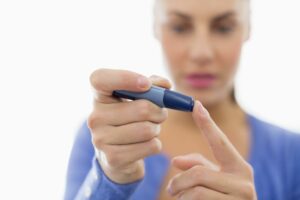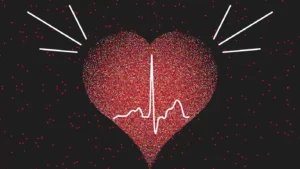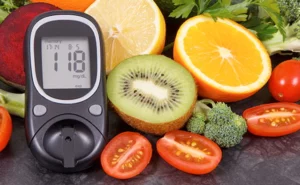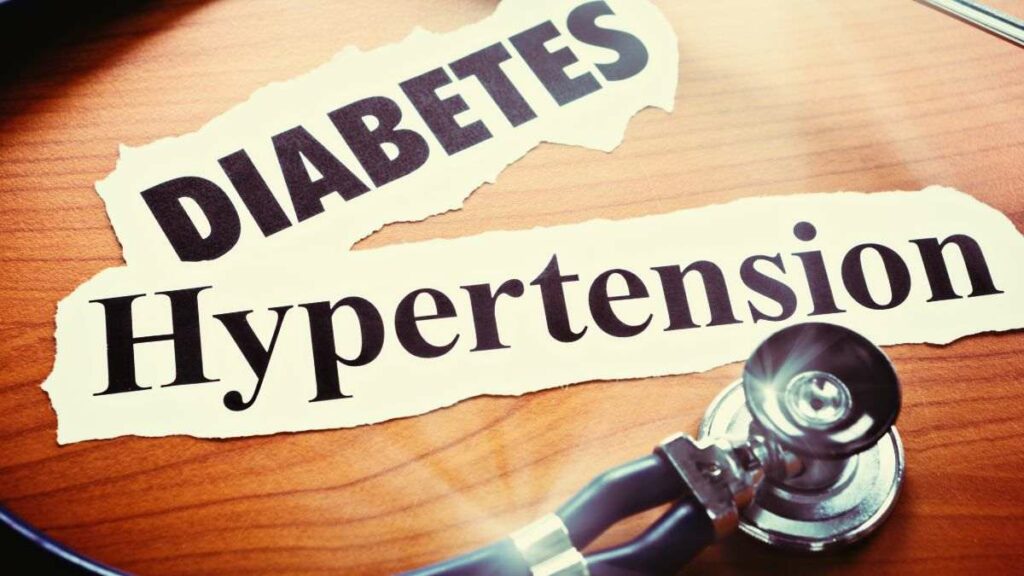Hypertension and diabetes can present significant challenges, but with the right knowledge and proactive approach, individuals can effectively manage these conditions and lead fulfilling, healthy lives. In this guide, we will explore the intricacies of hypertension and diabetes and also hypertension and diabetes treatment options. Whether you or a loved one is navigating the complexities of these conditions, this blog aims to empower you with the information needed to make informed decisions about your health.
Contents
How Is Diabetes And Hypertension Related?
 The connection between hypertension (high blood pressure) and diabetes is multifaceted. And individuals with diabetes are at a higher risk of developing hypertension. This link is often referred to as “diabetic hypertension” or “diabetic nephropathy” when it involves kidney complications. Several factors contribute to the connection between these two conditions:
The connection between hypertension (high blood pressure) and diabetes is multifaceted. And individuals with diabetes are at a higher risk of developing hypertension. This link is often referred to as “diabetic hypertension” or “diabetic nephropathy” when it involves kidney complications. Several factors contribute to the connection between these two conditions:
- Insulin Resistance
In individuals with type 2 diabetes, the body’s cells become resistant to the effects of insulin, leading to higher blood sugar levels. Insulin resistance is also associated with an increase in blood pressure.
- Inflammation
Both diabetes and hypertension are linked to chronic inflammation. Inflammation can damage blood vessels. And, making them less elastic and more prone to constriction, thereby increasing blood pressure.
- Obesity
Obesity is a common risk factor for both diabetes and hypertension. Excess body weight, especially around the abdominal area, can contribute to insulin resistance and high blood pressure.
- Hormonal Imbalances
Hormones play a crucial role in regulating blood pressure. Diabetes can disrupt the balance of various hormones. Such as insulin and leptin, which may contribute to hypertension.
- Endothelial Dysfunction
Diabetes can cause dysfunction in the endothelium, the inner lining of blood vessels. This dysfunction impairs the ability of blood vessels to relax and dilate, leading to increased resistance and elevated blood pressure.
- Kidney Involvement
Both diabetes and hypertension are leading causes of kidney disease. Diabetes can damage the kidneys over time (diabetic nephropathy), and kidney dysfunction can contribute to hypertension.
- Genetic Predisposition
There may be a genetic component that predisposes some individuals to both diabetes and hypertension. If there is a family history of these conditions, an individual may have an increased risk.
Understanding and managing both diabetes and hypertension is crucial for overall health. Early intervention and comprehensive care can help reduce the risk of complications associated with the coexistence of diabetes and hypertension.
What Are The Effective Hypertension And Diabetes Treatment?
 Effective hypertension and diabetes treatment involves a combination of lifestyle modifications, medications, and regular monitoring. Individuals need to work closely with healthcare professionals to develop a personalized treatment plan based on their specific health needs. Here are common treatments for both hypertension and diabetes:
Effective hypertension and diabetes treatment involves a combination of lifestyle modifications, medications, and regular monitoring. Individuals need to work closely with healthcare professionals to develop a personalized treatment plan based on their specific health needs. Here are common treatments for both hypertension and diabetes:
Lifestyle Modifications
- DASH Diet: This emphasizes the importance of reducing sodium intake, which helps control blood pressure. It also promotes the consumption of potassium-rich foods like fruits and vegetables, which are beneficial for heart health.
- Carbohydrate Management: For diabetes management, individuals may consider carbohydrate counting and choosing complex carbohydrates to help stabilize blood sugar levels.
- Aerobic Exercise: Activities like brisk walking, jogging, or swimming improve cardiovascular health, aiding in blood pressure control and insulin sensitivity.
- Strength Training: Building muscle through activities like weightlifting can enhance metabolism and contribute to weight management.
- Body Mass Index (BMI): Healthcare providers may help set realistic weight loss goals based on an individual’s BMI. Even modest weight loss can have a significant impact on blood pressure and blood sugar control.
- Mindfulness and Meditation: These practices promote relaxation and can help manage stress. This is crucial for individuals dealing with both hypertension and diabetes.
- Yoga and Deep Breathing Exercises: Physical activities that combine movement with controlled breathing can contribute to overall well-being.
- Moderation is Key: While moderate alcohol consumption may have some cardiovascular benefits, excessive intake can raise blood pressure. Similarly, caffeine sensitivity varies. So it’s important to be mindful of its effects.
- Smoking Cessation Programs: These programs provide support and resources to help individuals quit smoking, reducing the risk of cardiovascular complications.
Medications
- Diuretics: These medications help the body eliminate excess sodium and fluid, reducing blood volume and subsequently lowering blood pressure.
- ACE Inhibitors and ARBs: These medications relax blood vessels, making it easier for the heart to pump blood, thereby reducing blood pressure.
- Beta-blockers and Calcium Channel Blockers: These medications work by affecting the heart’s pumping action and the relaxation of blood vessels, helping to control blood pressure.
- Metformin: Improves insulin sensitivity and decreases glucose production in the liver.
- SGLT-2 Inhibitors and GLP-1 Receptor Agonists: These newer classes of medications have cardiovascular benefits beyond glucose control, making them valuable in managing diabetes and reducing cardiovascular risk.
- Customized Insulin Regimens: Insulin therapy is tailored to an individual’s needs, considering factors such as meal patterns, lifestyle, and blood glucose levels.
- Simplified Treatment: Combination medications can improve adherence by reducing the number of pills a person needs to take, making it more convenient for individuals managing both conditions.
Regular Monitoring
- Home Monitoring Devices: Regular monitoring at home helps individuals track their blood pressure trends and provides valuable information for healthcare providers.
- Glucose Meters and Continuous Glucose Monitoring (CGM): These tools assist individuals with diabetes in tracking blood sugar levels, enabling timely adjustments to medications and lifestyles.
- Comprehensive Assessments: Regular medical checkups include evaluating overall health, assessing medication efficacy, and addressing any emerging concerns.
- Lipid Profiles: Monitoring cholesterol levels helps in the early detection and management of dyslipidemia, a common concern in individuals with diabetes and hypertension.
- Albuminuria Testing: Regular checks for the presence of albumin in the urine help identify early signs of kidney damage in individuals with diabetes.
By integrating these comprehensive approaches into daily life and maintaining regular communication with healthcare professionals, individuals can effectively manage both hypertension and diabetes, reducing the risk of complications and improving their overall quality of life.
How Do You Control Blood Pressure And Sugar?
Controlling blood pressure and blood sugar involves a combination of lifestyle changes, medications, and ongoing monitoring. Here are additional strategies and tips for managing both conditions:
Blood Pressure Control
- Potassium-rich foods: Increase the intake of potassium-rich foods like bananas, oranges, spinach, and sweet potatoes. Potassium helps balance sodium levels and supports healthy blood pressure.
- Magnesium-Rich Diet: Include magnesium-rich foods such as leafy greens, nuts, and whole grains in your diet. Magnesium plays a role in relaxing blood vessels and regulating blood pressure.
- Garlic Supplementation: Consider adding garlic to your diet or taking garlic supplements. Garlic has been associated with modest reductions in blood pressure.
- Beetroot Juice: Some studies suggest that beetroot juice may have a positive impact on blood pressure due to its nitrate content, which can help dilate blood vessels.
- Limit Processed Foods: Minimize the consumption of processed and packaged foods, as they often contain high levels of sodium. Opt for fresh, whole foods whenever possible.
Blood Sugar Control

- Fiber-Rich Diet: Emphasize high-fiber foods like fruits, vegetables, whole grains, and legumes. Fiber helps stabilize blood sugar levels and improves insulin sensitivity.
- Cinnamon Supplementation: Some studies suggest that cinnamon may have a beneficial effect on blood sugar levels. Consider adding a sprinkle of cinnamon to your meals or taking it as a supplement after consulting with your healthcare provider.
- Protein with Every Meal: Include a source of lean protein with each meal. Protein helps slow down the absorption of carbohydrates, preventing rapid spikes in blood sugar.
- Apple Cider Vinegar: Some individuals find that consuming apple cider vinegar before meals may help improve insulin sensitivity and lower post-meal blood sugar levels. However, it’s essential to consult with a healthcare professional before incorporating it into your routine.
- Hydration: Stay well-hydrated with water throughout the day. Dehydration can affect blood sugar levels, so it’s crucial to maintain adequate fluid intake.
It’s crucial to note that individual responses to lifestyle changes can vary. Regular communication with healthcare professionals is essential to tailor a plan that suits individual needs and to make any necessary adjustments to hypertension and diabetes treatment strategies. Consistency in healthy habits and a proactive approach to managing stress and sleep can contribute significantly to achieving and maintaining optimal blood pressure and blood sugar levels.
Conclusion
In conclusion, hypertension and diabetes treatment require a holistic approach that combines healthy lifestyle choices, medication adherence, and regular monitoring. By adopting a balanced diet rich in fruits, vegetables, and whole grains, engaging in regular physical activity, and maintaining a healthy weight, individuals can positively impact both blood pressure and blood sugar levels. Alongside these lifestyle changes, working closely with healthcare professionals to find the right medications and monitoring progress is essential.
Stress management techniques, good sleep hygiene, and a strong support system can further contribute to overall well-being. Remember, each person’s journey is unique, and consistent efforts in making positive choices can lead to better control of hypertension and diabetes, reducing the risk of complications and promoting a healthier, more fulfilling life.
Do you want to get rid of diabetes? Join our online diabetes treatment program and reverse Diabetes naturally through lifestyle changes such as a Personalized Diet plan, Exercise, Yoga, dieticians, and health coaches.

